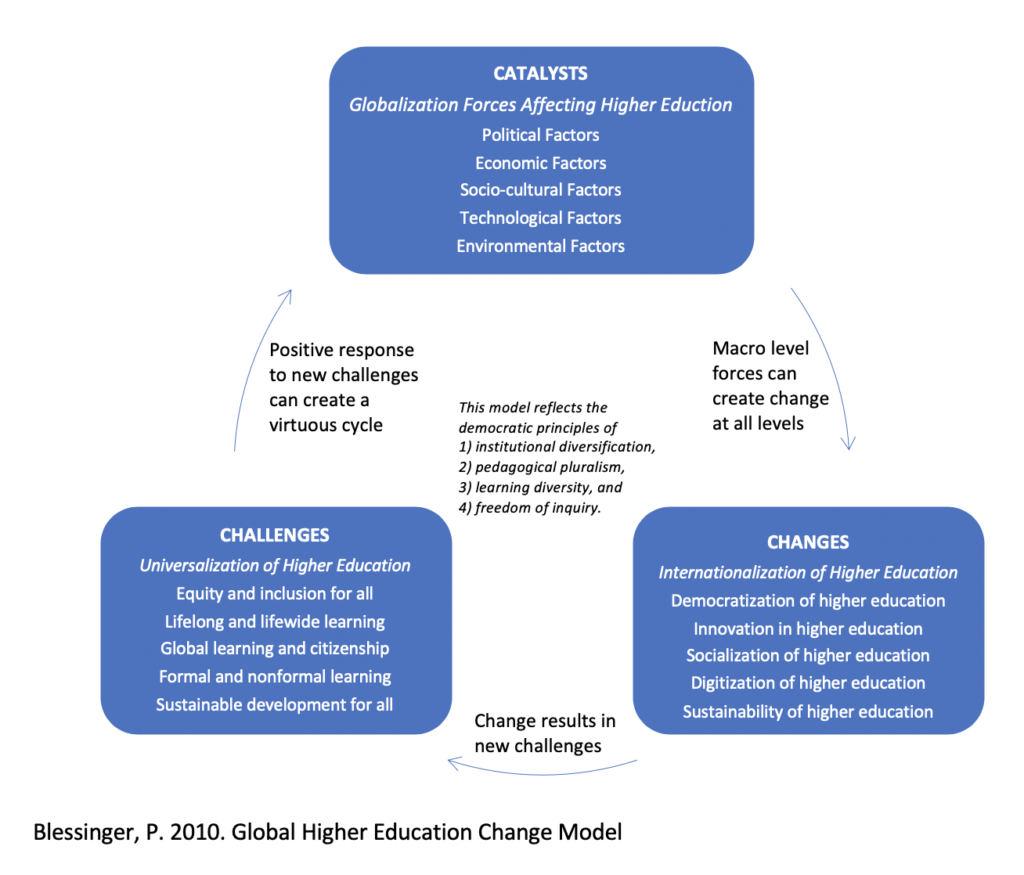The International Higher Education Teaching and Learning Association (HETL) is an independent, nonpartisan, nonsectarian, 501(c)(3) not-for-profit non-governmental organization (NGO). HETL is open to all educators from all nationalities, all institutional types, and all functions, levels, and disciplines within the global educational community, including K-12 educators. HETL advances the scholarship and practice of teaching and learning in higher education by focusing on four focus areas: 1) global networking and multidisciplinary collaboration, 2) academic research, innovation, and publishing, 3) higher education development and capacity building, and 4) rights, democracy, and sustainability. HETL is an association of educators, by educators, and for educators. HETL maintains NGO Special Consultative Status with the United Nations Economic and Social Council (ECOSOC) and is a member of the Conference of NGOs in Consultative Relationship with the United Nations. HETL also has strategic partnerships and affiliations with several like-minded organizations.
A chief aim of HETL is to make higher education work for all by transforming and democratizing higher education around the world and by improving teaching and learning for all in every aspect of life (e.g., lifelong and lifewide education, formal, informal, non-formal learning). To that end, HETL conducts and publishes basic and applied research in order to develop new research theories, principals, models, frameworks, taxonomies, methods, and concepts related to higher education and to teaching and learning at every level (primary, secondary, tertiary). HETL works at the nexus of theory, policy, and practice to help achieve this aim. Continuous professional development for faculty, administrators, and staff is a key outcome that flows from all HETL activities.
DEMOCRATIZING HIGHER EDUCATION
 HETL began as a global grassroots effort in January of 2010 when Patrick Blessinger (US Department of State Fulbright Senior Scholar to Denmark; UNESCO Inclusive Policy Lab Expert, State of Georgia Governor’s Teaching Fellow – Institute of Higher Education, University of Georgia, USA; Adjunct Professor of Education – St. John’s University, New York City; Adjunct Instructor of Education – the State University of New York at Old Westbury; Educator – New York State Education Department) envisioned the idea for the higher education teaching and learning association with the aim of transforming and democratizing higher education worldwide by bringing together education professionals and academic leaders from all education types, levels, functions, and disciplines from around the world to dialogue, network, and collaborate on effective, sustainable, and meaningful ways to transform teaching and learning for a brighter future for all people. Blessinger is an internationally recognized scholar and leader in the democratization of higher education (e.g., open education, the democratization of knowledge, globalization-internationalization, human rights, sustainability), in the use of internet-based professional social networking platforms to develop global online communities of practice for academic professional development, and in the areas of learning communities, inclusion, and instructional leadership.
HETL began as a global grassroots effort in January of 2010 when Patrick Blessinger (US Department of State Fulbright Senior Scholar to Denmark; UNESCO Inclusive Policy Lab Expert, State of Georgia Governor’s Teaching Fellow – Institute of Higher Education, University of Georgia, USA; Adjunct Professor of Education – St. John’s University, New York City; Adjunct Instructor of Education – the State University of New York at Old Westbury; Educator – New York State Education Department) envisioned the idea for the higher education teaching and learning association with the aim of transforming and democratizing higher education worldwide by bringing together education professionals and academic leaders from all education types, levels, functions, and disciplines from around the world to dialogue, network, and collaborate on effective, sustainable, and meaningful ways to transform teaching and learning for a brighter future for all people. Blessinger is an internationally recognized scholar and leader in the democratization of higher education (e.g., open education, the democratization of knowledge, globalization-internationalization, human rights, sustainability), in the use of internet-based professional social networking platforms to develop global online communities of practice for academic professional development, and in the areas of learning communities, inclusion, and instructional leadership.
The vision of HETL focuses on teaching and learning because the teaching-learning process is the most fundamental underlying mechanism and unifying process that lies at the core of any education system, regardless of institutional type or level or mission or discipline, and because lifelong and lifewide learning lies at the heart of political, social, economic, and personal empowerment for all people.
The teaching-learning process is the common denominator shared by all educational institutions at all levels and it therefore serves as the central organizing principle for all educational systems around the world.
The vision of HETL is therefore focused on teaching-learning and aligned with and supports the democratic principles of institutional diversification and autonomy, pedagogical pluralism, learning diversity, and freedom of inquiry and academic freedom. Thus, HETL represents the emerging transformations taking place in higher education around the world.
In January of 2010, to begin bringing this vision to reality, Blessinger conducted extensive analysis on the strengths, challenges, and opportunities for transformative action within the global higher education community and, based on this analysis, he developed an initial set of ontologically oriented macro and micro conceptual-theoretical models and frameworks (e.g., global higher education change model, formal learning cycle model, general organizational value model, educational research methodology framework) to provide a more meaningful understanding of the fundamental underlying mechanisms driving change in higher education globally, nationally, and institutionally. Blessinger is an expert on the topics of research, leadership, innovation, teaching, learning, student engagement, faculty development, global studies, rights, democracy, sustainability, and their intersections.
INCLUSIVE GLOBAL ONLINE COMMUNITY OF PRACTICE
In February of 2010, to begin the work of operationalizing these models, Blessinger conducted extensive analysis on the strengths and characteristics of the major internet-based communication platforms to determine which platform(s) would be most suitable for developing and managing a global online community of practice and academic discussion forum. Based on the results of this analysis, on February 17, 2010, Blessinger created an academic discussion forum on the professional social networking site LinkedIn to serve as a global online academic community of practice and invited educators from around the world to participate in the community based on democratic principles of equity, inclusion, self-governance, shared responsibility, and global cooperation and understanding. Thus, this inclusive, grass-roots, self-organizing learning community also serves as a “proof of concept” (i.e., empirical test case) for the conceptual models. Utilizing free internet-based professional social networking and other global communication platforms allows educators from around the world to readily join and participate in the global learning community for free, thereby eliminating geographic, economic, and other barriers. The aim of these HETL communities is therefore to remove all unnecessary and arbitrary access barriers, thereby allowing all educators to freely connect, communicate, and collaborate in meaningful ways and engage in open meaning-making processes with other educators. The HETL global online community of practice has been the subject of several academic research studies, including “Digital ethnography: understanding faculty use of an online community of practice for professional development” Nancy Richmond and “Hazy Boundaries: Virtual Communities and Research Ethics” by Helena Kantanen and Jyri Manninen.
GLOBAL DEMOCRATIC PARTICIPATORY CULTURE
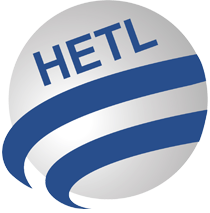 Throughout 2010, the HETL learning community was further developed and refined through input from members in the academic discussion forum, for how best to self-govern the community and self-determine its direction. The democratic characteristics of inclusion, self-governance, and self-determination recognize the professional nature of the educational community while respecting the uniqueness of each participant. The HETL learning community grew to several thousand members in its first year, reflecting the desire of the global higher education community to come together to dialogue, network, and collaborate on meaningful ways to transform teaching and learning and reflecting their desire to democratize higher education by creating a global participatory culture of education that brings educators together from all levels and functions to work at the nexus of theory, policy, and practice.
Throughout 2010, the HETL learning community was further developed and refined through input from members in the academic discussion forum, for how best to self-govern the community and self-determine its direction. The democratic characteristics of inclusion, self-governance, and self-determination recognize the professional nature of the educational community while respecting the uniqueness of each participant. The HETL learning community grew to several thousand members in its first year, reflecting the desire of the global higher education community to come together to dialogue, network, and collaborate on meaningful ways to transform teaching and learning and reflecting their desire to democratize higher education by creating a global participatory culture of education that brings educators together from all levels and functions to work at the nexus of theory, policy, and practice.
DIGITAL LEARNING COMMONS
As a result of the development of the online community of practice and academic discussion forum, in January of 2011, Blessinger envisioned the idea for a global academic digital learning commons based on an ethos of a global participatory culture and with the aim of democratizing higher education academic publishing. To that end, Blessinger created the HETL Website. This type of open educational resource platform and web-based portal serves as a public clearinghouse and repository of knowledge on cutting-edge research and innovation related to the scholarship and practice of teaching and learning in higher education. Leading educational scholars, faculty, and leaders from the HETL academic discussion forum were invited to serve on the initial HETL boards to help collectively define policies for how best to steer the evolving organization and how best to collectively manage HETL’s emerging activities. The academic discussion forum and the launch of the website were reported by The Chronicle of Higher Education.
GOVERNANCE & MANAGEMENT
In March of 2011, an executive committee emerged from the initial boards in order to provide more focused direction to the organization and to start work on policies and by-laws in order to formalize the governance and management structure of the organization and to put in place a structure to allow the organization to become self-sustaining. In March of 2011, Dr. Patrick Blessinger was unanimously elected as standing executive director (CEO) by the 120 members of the HETL boards, serving in their capacity as representatives of the global higher education community.
In the first half of 2011, representatives from the HETL discussion forum worked on a set of policies to help the discussion group run professionally and ethically and to help ensure that the development and direction of the forum are in alignment HETL’s values, mission, and vision. The scope of the discussion forum policies includes the basic rules, roles, and responsibilities related to the proper management and moderation of the group. On July 8, 2011, the HETL Discussion Group Policies were unanimously approved by the HETL executive committee.
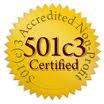 With headquarters in New York City, on September 12, 2011, HETL became a legally certified not-for-profit association (type B corporation under Section 201 of the not-for-profit corporation law) in the State of New York (USA) and a not-for-profit public charity under Section 501(c)(3) of the Internal Revenue Code of the IRS (USA) at which point the executive committee officially became the Board of Directors. At both the state (New York) and federal (IRS) levels, the remit of HETL is to provide educational, scientific, literary, and cultural services to the public and to the global educational community.
With headquarters in New York City, on September 12, 2011, HETL became a legally certified not-for-profit association (type B corporation under Section 201 of the not-for-profit corporation law) in the State of New York (USA) and a not-for-profit public charity under Section 501(c)(3) of the Internal Revenue Code of the IRS (USA) at which point the executive committee officially became the Board of Directors. At both the state (New York) and federal (IRS) levels, the remit of HETL is to provide educational, scientific, literary, and cultural services to the public and to the global educational community.
COLLABORATIVE RESEARCH & PUBLISHING
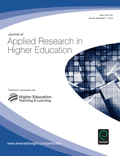 In July of 2012, HETL partnered with the web development company, Dot Solutions and Technologies, to provide technology services for HETL. In August of 2012, HETL was selected by the international academic publisher, Emerald Group Publishing, to manage the editorship of the Journal of Applied Research in Higher Education (JARHE). Educators can view the Meet the Editor video to find out more about the journal.
In July of 2012, HETL partnered with the web development company, Dot Solutions and Technologies, to provide technology services for HETL. In August of 2012, HETL was selected by the international academic publisher, Emerald Group Publishing, to manage the editorship of the Journal of Applied Research in Higher Education (JARHE). Educators can view the Meet the Editor video to find out more about the journal.
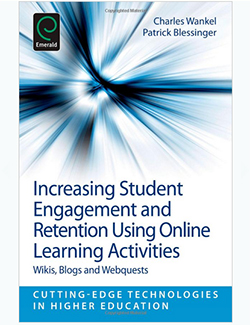 In February of 2013, HETL produced its first book series on the topic of increasing student engagement and retention using cutting-edge technologies. The book series focused on innovative approaches to learning-centered teaching. This project produced seven books that included chapter contributions from nearly one hundred scholars from around the world. In April of 2013, HETL sponsored and edited a book on the topic of meaning-centered education and included chapter contributions from a dozen scholars from around the world. The book explores and develops a vision of education where students and instructors engage in open meaning-making processes and self-organizing educational practices and learning activities.
In February of 2013, HETL produced its first book series on the topic of increasing student engagement and retention using cutting-edge technologies. The book series focused on innovative approaches to learning-centered teaching. This project produced seven books that included chapter contributions from nearly one hundred scholars from around the world. In April of 2013, HETL sponsored and edited a book on the topic of meaning-centered education and included chapter contributions from a dozen scholars from around the world. The book explores and develops a vision of education where students and instructors engage in open meaning-making processes and self-organizing educational practices and learning activities.
INTERNATIONAL CONFERENCES
 In January of 2013, the first HETL conference was hosted by the University of Central Florida in Orlando, Florida, USA, with the theme, Exploring Spaces for Learning. The conference was attended by over 400 delegates from 40 countries. The conference was a first in a series of international academic conferences focused on research and innovation in teaching and learning and centered around a cross-disciplinary participatory culture.
In January of 2013, the first HETL conference was hosted by the University of Central Florida in Orlando, Florida, USA, with the theme, Exploring Spaces for Learning. The conference was attended by over 400 delegates from 40 countries. The conference was a first in a series of international academic conferences focused on research and innovation in teaching and learning and centered around a cross-disciplinary participatory culture.
EXPANDING GLOBAL RECOGNITION
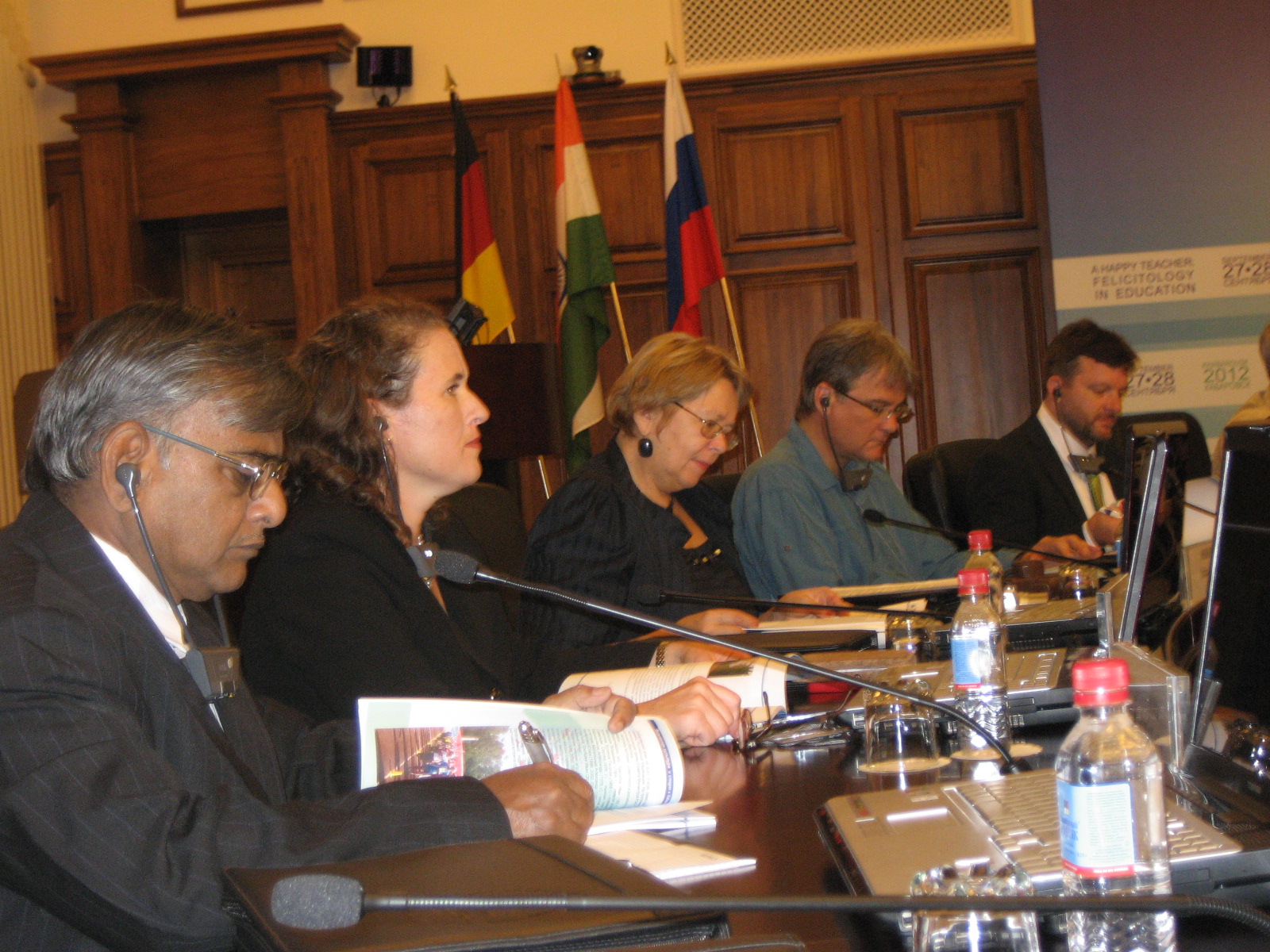 In September of 2012, HETL members gathered in Khobarovsk Krai, Russia for the international conference entitled, A Happy Teacher: Felicitology in Education. The conference explored the meaning and issues involved in academic happiness. The conference was an exciting opportunity to enhance international relations, intercultural communications, and educational development. In April of 2013, HETL members gathered in Montreal, Canada for a conference entitled, The Future of Learning. The conference explored how technology can be a catalyst for new forms of teaching and learning and how technology can expand opportunities for interaction between faculty and students across all modes of inquiry and all course delivery methods.
In September of 2012, HETL members gathered in Khobarovsk Krai, Russia for the international conference entitled, A Happy Teacher: Felicitology in Education. The conference explored the meaning and issues involved in academic happiness. The conference was an exciting opportunity to enhance international relations, intercultural communications, and educational development. In April of 2013, HETL members gathered in Montreal, Canada for a conference entitled, The Future of Learning. The conference explored how technology can be a catalyst for new forms of teaching and learning and how technology can expand opportunities for interaction between faculty and students across all modes of inquiry and all course delivery methods.
EXPANDING RESEARCH PROGRAMS
In February of 2014, redesigned a new version of its website portal to better meet the needs of the global educational community. In March of 2014, HETL launched a new doctoral awards program called the Emerald HETL Education Outstanding Doctoral Research Award. In April of 2014, HETL launched a new book series: Innovations in Higher Education Teaching and Learning Book Series. In May of 2014, HETL established an Institutional Review Board (IRB) to better manage its research projects and to implement higher quality ethical research protocols for HETL related research.
In May of 2014, HETL held its Second International Conference in Anchorage, Alaska. The conference theme was Innovative Learning-Scapes which explored how digital, social, and mobile media and networks are impacting learning environments in higher education. The conference was attended by 250 delegates from 20 countries.
EXPANDING HETL’S INFLUENCE
In January of 2015, HETL held its Third International Conference in Orem, Utah. The conference theme was Reaching the Summit: Explorations in Meaningful Learning through Community Engagement. The conference was attended by 175 delegates from 15 countries.
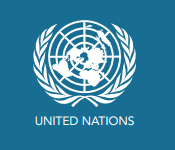 In February 2015, the Committee on Non-Governmental Organizations, which is part of the Economic and Social Council (ECOSOC) of the United Nations, selected HETL for NGO special consultative status with the UN. Thus, HETL maintains NGO Special Consultative Status with the United Nations Economic and Social Council (ECOSOC) and is a member of the Conference of NGOs in Consultative Relationship with the United Nations.
In February 2015, the Committee on Non-Governmental Organizations, which is part of the Economic and Social Council (ECOSOC) of the United Nations, selected HETL for NGO special consultative status with the UN. Thus, HETL maintains NGO Special Consultative Status with the United Nations Economic and Social Council (ECOSOC) and is a member of the Conference of NGOs in Consultative Relationship with the United Nations.
In June of 2017, HETL held its Fourth International Conference in Paisley, Scotland. The conference theme was Creating Inclusion and Diversity in Higher Education. The conference was attended by 250 delegates from 25 countries.
HETL’s Journal of Applied Research in Higher Education (JARHE) provides in-depth academic research on critical issues relevant to higher education. JARHE is abstracted and indexed in, Academic Search Alumni Edition, Academic Search Complete, Academic Search Elite, Academic Search Premier, BFI (Denmark), Cabell’s Directory of Publishing Opportunities in Higher Education, EBSCO and Education Research Complete, and is ranked by, Scopus and Emerging Sources Citation Index (Clarivate Analytics).
In 2020, HETL reorganized its boards and created the Country Delegates program in order to streamline operations and extend its reach around the world.
As of 2021, HETL’s Innovations in Higher Education Teaching and Learning book series has produced 40 volumes on critical issues relevant to higher education. The peer-reviewed series has collaborated with over 800 educational scholars, researchers, and leaders from around the world to produce cutting-edge research on the most critical topics impacting education at all levels. Contributing authors represent every continent and every institutional type.
In August of 2021, HETL launched its second peer-reviewed series on the theme of, Global Development in Higher Education. The first volume will be on the topic, Worldviews and Values in Higher Education.
In September 2022, HETL will hold its Fifth International Conference in Istanbul, Turkey.
Plans are now underway for HETL’s Sixth International Conference in Aberdeen, Scotland, UK.
In March of 2022, HETL redesigned a new version of its website to better meet the needs of the global educational community.
NETWORK AT A GLANCE
The HETL global network represents:
- over 180 countries from six continents
- all disciplines, functions, and levels within education
- all institutional types and missions within education
Approximate representation by platform:
- LinkedIn members (340,000)
- Facebook followers (155,500)
Approximate representation by location:
- Africa (20%)
- Asia (20%)
- Europe (20%)
- North America (20%)
- Oceania (10%)
- South America (10%)
Approximate representation by function:
- Educational faculty, researchers, scholars, academicians (85%)
- Educational leaders, executives, managers, administrators (14%)
- Educational staff, e.g., librarians, technologists, support (1%)
- Educational publishing, e.g., publishers, editors, authors (<1%)
CONTACT US
For all other queries, please contact HETL support at [email protected]
